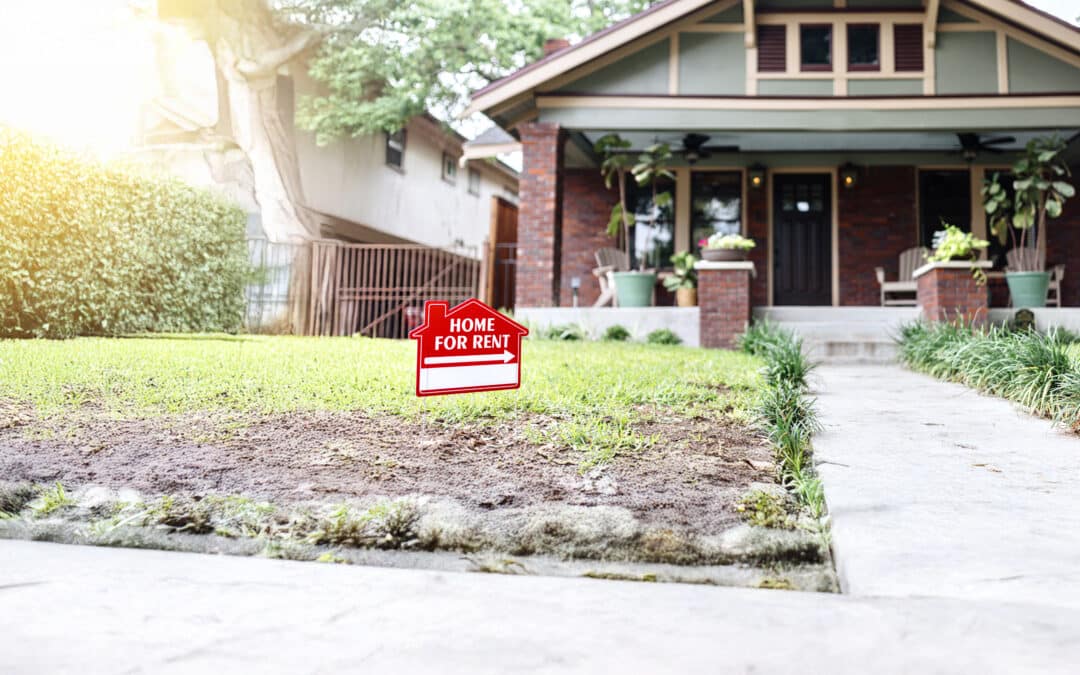Turn on any newscast and one of the phrases you are likely to hear is the “New Normal.” There is an expectation that the COVID-19 crisis has permanently altered just about everything we know to be true and that we should accept our fate.
I take a slightly different view, especially when it comes to changes in the Single– Family Rental home business.
The world is always changing. That was true before COVID-19 and it will be true long after we find a vaccine. What was commonplace when I got into the SFR business 15 years ago has evolved over time. For example, building an entire subdivision with just rental homes didn’t exist 15 years ago. Today, it is an emerging trend.
There is a better way to view the pandemic’s impact. Instead of lazily assuming there is a “New Normal” take a look at how things have changed:
- Some existing trends have accelerated. For example, video conferencing and working from home were already growing trends pre-virus. Post-virus, working from home and video conferencing growth has exploded.
- Some things have been altered temporarily; I’m willing to bet that standing six feet apart at the grocery will fade out as soon as there is a vaccine.
- Some things have barely changed at all. People still need a roof over their head.
Now, apply that same line of thinking to SFR investing:
- What’s accelerated? Renting will likely continue to grow, but at a faster rate.
- What’s temporary? Lenders are pulling back on deals that would have been approved just two months ago.
- What hasn’t changed? Residential properties seem to be holding their value.
Economic Challenges Will Drive More People to Rent
First, let’s take a look at how COVID-19 is likely accelerating the percentage of consumers who will rent. Pre-virus, Millennials were getting older and looking for a home with four walls and a yard. Unfortunately, many Millenials have amassed significant student loan debt. This was already hampering their ability to buy a home and pushing more of the largest generation into rentals. The financial fallout from COVID-19 will put even more stress on personal financial situations and likely will take homeownership out of reach for even more people. Ultimately, this will accelerate the number of people who want — or need — to rent.
Lenders Always Get More Risk-Averse in Down Times
Next, why is the pull-back by banks a temporary phenomenon? Most lender strategies swing back and forth like a pendulum. When economic conditions are positive, lenders begin to loosen the reigns and take on more risk. When the economy starts to contract, lenders naturally become more risk averse. With current economic conditions pointing toward a recession, lenders are steering clear of high-risk customers and asking for more money down from even those with pristine credit. We are seeing loans at 70 percent LTV/LTC today, where they were 80 percent LTV/LTC just two months ago.
This does not constitute a “new normal.” It’s simply a normal reaction by lenders in the face of trying times. As the economy begins its trek back to prosperity, lenders will swing back toward more easily obtained financing.
Homes Are Still a Good Investment
Finally, home values have held up nicely in the wake of COVID-19 in many markets across the country. In Detroit, the average sale price was up 8.5 percent from April 2019 to April 2020. In Austin, Texas, the average sale price was up 3.2 percent and in Atlanta the average sale price was up 8.9 percent.
That’s good news for SFR investors, as their home portfolios are most likely still holding their values. Rent collection fears still exist, but according to the National Association of Residential Property Managers, “Over 60 percent of property managers reported that 91 to 100 percent of their tenants had paid May’s rent in full and on-time.” This means overall rental cashflow is likely still positive for most investors.
What This Means to the SFR World
Analyzing each phase of any business against these criteria — What Is Accelerated, What Is Temporary and What Is Unchanged — gives people an objective method for evaluating change. We WILL go through change, pandemic or not.
Even with all the recent upheaval, SFR investing still makes sense in the long run. The acceleration in the percentage of potential renters creates a ready-made market to help fill homes and build cashflow. Strong home values make SFR a sound long-term investment — even if homes have a slight dip in short-term values, a positive cashflow from rental income will help investors build equity.
In the short-term, tighter lending strategies will likely keep some investors on the sideline. However, shopping for deals outside of traditional banks at credit unions or smaller community banks could give investors the terms they need to strike a deal. And, of course, some investors still will be willing to take a 70 percent LTC/LTV deal.
Looking at SFR trends through this lense rather than throwing your hands in the air and accepting something is the “New Normal” shows there is still a tremendous upside. Yes, we are going through some crazy times. But, that doesn’t mean that investors should just roll over. Learn to analyze and manage change and there is still money to be made.
























0 Comments